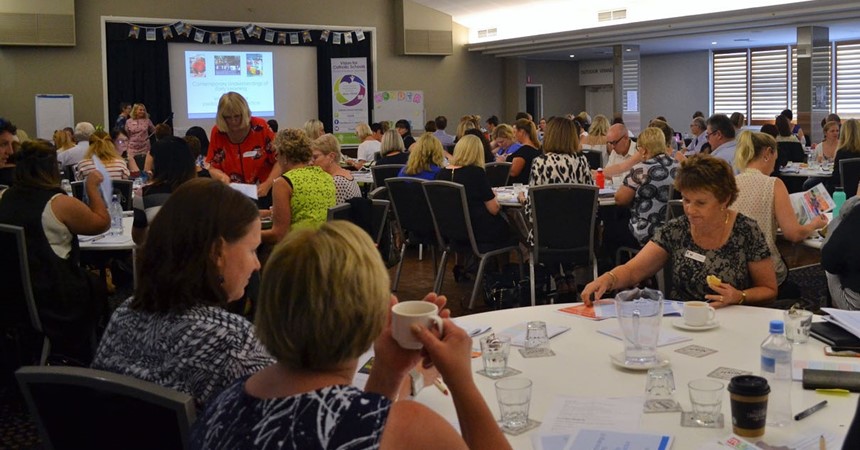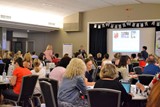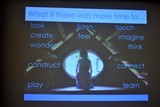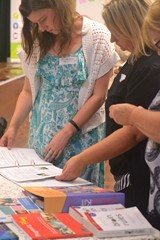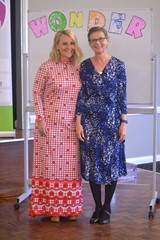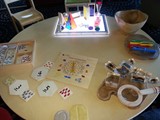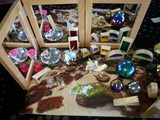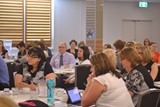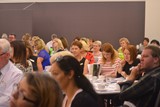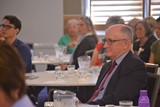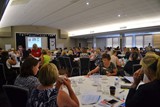The event was created as part of the Catholic Schools Strategic Plan 2016 under Meeting Student Need to identify and ensure a focus on quality practice in the early years. The Early Learning Summit was an important precursor in the system direction and focus for the diocese in this area.
Senior Lecturer in Early Childhood Education, Dr Cathie Harrison, from Australian Catholic University was the keynote speaker at the summit. Dr Harrison spoke about contemporary Early Learning philosophy and pedagogy including shifting the frame on the image of the child and brain development. Implications for pedagogy and practice including play theory, what play looks like in a kindergarten environment, how play is embedded into curriculum as well as transition and the importance of environment were also featured in Dr Harrison’s presentation. Participants had time for collaboration as well as opportunities to visit market stalls, engage with a wonderwall, review resources and view a slideshow of photos during morning tea and lunch.
The key messages of the Early Learning Summit include:
-
The period of Early Childhood is perhaps the richest time in the life span for exploration, investigation, creativity, innovation and imagination.
-
Theoretical perspectives are important in gaining a deeper understanding of Early Learning.
-
The Early Learner is curious, creative and capable with ideas and interests. As a member of a learning community, the Early Learner possesses diverse knowledge and experience from home, family and prior to school services.
-
The Early Learner is a child of God with body, heart, mind and spirit who is unique and flourishes within secure and responsive relationships.
-
Neural circuitry is developed in the early years. Neurological research indicates that brains are hardwired for play. The brain’s frontal cortex is better developed when in play and play activates the brain.
-
Play is a context for involvement, deep thinking and learning. It is a state of intense mental activity, characterised by sustained concentration and intrinsic motivation. Play is a pedagogy and needs to be embedded into curriculum.
-
The teacher is a collaborator and co-researcher with the child. Effective pedagogy is both “explicit teaching” and the provision of instructive learning and play environments.
-
Environments matter! Educators and children interacting in intentional learning environments work together in an intellectual way.
-
The quality and richness of play are linked to the child’s access to quality resources. We need to rethink our indoor and outdoor environments.
-
Family has a key role in the co-construction of knowledge about and with children.
-
Transition is not about adult perceptions of school readiness.
The Early Learning Summit was an overwhelming success and this was reflected in the evaluations. The reflective nature of the evaluations provides evidence that Early Learning is an integral part of the educational landscape and of great importance for all stakeholders in diocesan schools across the Diocese of Maitland-Newcastle.
